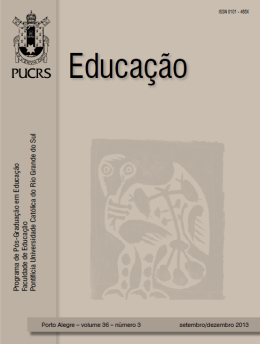Cultural phenomenology embodiment: agency, sexual difference, and illness
Keywords:
Embodiment. Agency. Illness. Phenomenological anthropology.Abstract
The article presents the notion of corporeality, relating to the dimensions of agency, of sexual difference and sickness. The author comes from the phenomenological anthropology to perform what he calls a cultural and phenomenological analysis of the Self. He contrasts the notion of the body
as material object with the corporeality as flesh mutually shared, implicated and never completely anonymous. This notion of corporeality reframes the body as a source of the existence and location of the world experience. The article constructs a scheme of body-world relations and explore their implications for the concept of embodiment. Articulates the notion of agency since Merleau-Ponty, Bourdieu and Foucault and the notion of sexual difference from feminist theories in Luce Irigaray, Julia Kristeva and Maxine Sheets-Johnstone. In the final section the author completes the outline with a discussion of three diseases – phantom limb, chronic fatigue and environmental illness – as an illustration of different dynamics of embodiment.Downloads
Downloads
How to Cite
Issue
Section
License
Copyright
The submission of originals to Educação implies the transfer by the authors of the right for publication. Authors retain copyright and grant the journal right of first publication. If the authors wish to include the same data into another publication, they must cite Educação as the site of original publication.
Creative Commons License
Except where otherwise specified, material published in this journal is licensed under a Creative Commons Attribution 4.0 International license, which allows unrestricted use, distribution and reproduction in any medium, provided the original publication is correctly cited.






